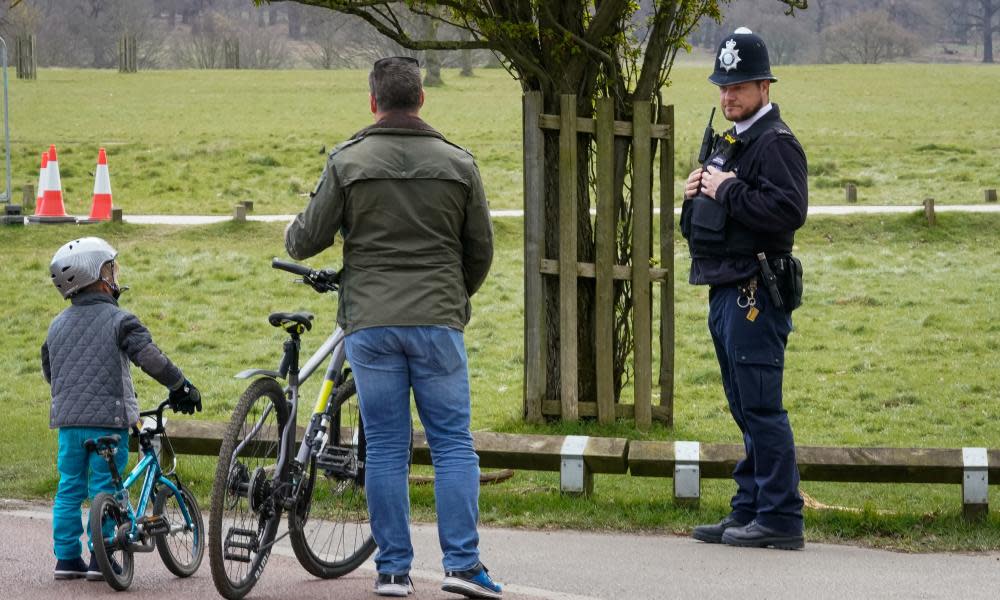The Guardian view on coronavirus policing: not a shame game

Just a few days have passed since police across the UK were charged with enforcing emergency laws designed to prevent people from leaving their homes unnecessarily and from mixing. Already, the way that some forces have chosen to interpret the new powers, which include the use of “reasonable force” as a last resort, has become controversial.
Last week Derbyshire police shared drone footage of dog walkers in the Peak District, captioned to make their disapproval clear. On Sunday, South Wales police replied to a tweet by the MP Stephen Kinnock by chastising him for paying a non-essential birthday visit to his father. As yet there are no national figures for the number of arrests or fines. But prominent lawyers and the former justice secretary, David Gauke, are among voices raised against what they regard as overzealous policing.
The police, it should be recognised, have been handed a task that could reasonably be described as impossible, if interpreted too literally. The new rules include a ban on non-essential outings and on gatherings of more than two people who do not live together. There is no way that everyone in the UK will obey them all the time. With this in mind, the aim must be to promote cooperation as far as possible, while being prepared to take action against serious or repeat offenders.
Frustration on the part of police and other authorities at the behaviour of day trippers who turned up at beauty spots across Britain over recent weeks is justified. For second-home owners, or anyone else, to ignore instructions to stay in their primary residence, and keep outings to a minimum, is selfish. To those whose loved ones are at particular risk from the coronavirus, for health reasons or because they are key workers, this behaviour – along with infractions such as ignoring social distancing guidance – can appear unforgivably reckless.
Most of us are likely to find reason to tut or glare at someone for breaking the rules in the coming weeks. But the police are among an extremely small number with the power to do anything about it. If that power is to be exercised properly, preventive measures should stop short of public shaming of individuals – particularly on social media platforms, where finger-pointing should be left to ordinary users.
Any temptation to go beyond what the law says, for example by deciding what constitutes exercise or which goods can be sold (both of which have been tried) must be strenuously resisted. Discretion must be exercised, particularly when dealing with older teenagers and young or vulnerable adults. Fining parents for failing to keep children at home might sound appealing, but punishing families who are struggling under the restrictions, and who may lack living space or other resources, would be counterproductive.
The point of the new laws is to make us safer. The danger is that they could increase, rather than lessen, divisions. But with care, the police ought to be able to send the message that we’re all in this together.


